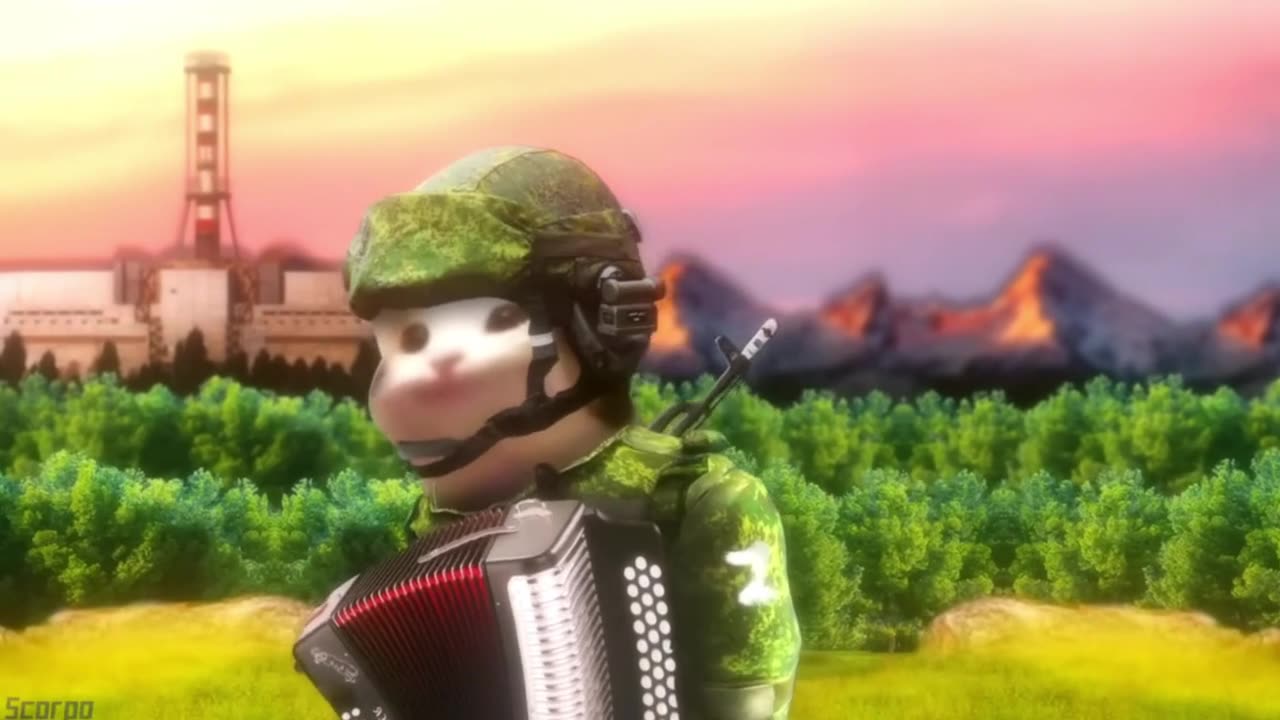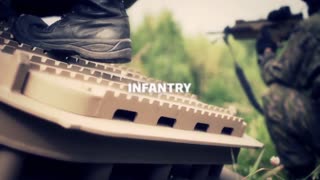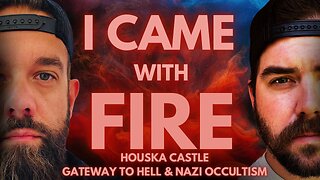Premium Only Content

Wind Of Change Scorpions
Wind Of Change Album: Crazy World (1990)
by Scorpions
The story goes... the band wrote this during a visit to Moscow in 1989. The previous year, they became the first hard-rock band to play in Russia, and they returned to play the Moscow Music Peace Festival. At this show, they were inspired by the sight of thousands of Russians cheering them on even though they were a German band. In a Songfacts interview with Scorpions guitarist Rudolf Schenker, he called this song, "A kind of message soundtrack to the world's most peaceful revolution on earth."
Lead singer Klaus Meine told NME about the concert that inspired this song: "Everyone was there: the Red Army, journalists, musicians from Germany, from America, from Russia-the whole world on one boat. It was like a vision; everyone was talking the same language. It was a very positive vibe. That night was the basic inspiration for Wind Of Change."
The "Wind of Change" that was blowing was the fall of the Soviet Union, which is what the song is about, but when the Berlin Wall fell on November 9, 1989, the song became the unofficial anthem for the German Reunification, an event that politically lasted from the fall Wall to the official reunification on October 3, 1990 (The Scorpions are a German band). The music video plays to this interpretation, with footage of the Berlin Wall being dismantled.
The Berlin Wall didn't come down until a few months after the song was written, though, and the inspiration came in Russia, not in Germany. This is confusing stuff for those not familiar with the time the song was written, so to put all of this in context we'll need a (very condensed) history lesson.
In 1917 the Bolsheviks overthrew the existing government in Russia in an event called the October Revolution. From there, Soviet Russia was born. In 1922, Soviet Russia became the Soviet Union after it officially unified with the Transcaucasian, Ukrainian, and Byelorussian Republics.
In 1924, Joseph Stalin took over control of the Soviet Union. The already authoritarian control became even more so. Though the Soviet Union was ostensibly composed of free bodies operating under the shared ideological banner of socialism, the truth was that all of it was tightly controlled from Moscow. Stalin viciously cracked down on anyone he thought might oppose his rule. This went beyond actual political saboteurs and included anyone who might harbor dissident ideas.
During World War II (1939–1945), Russia fought Nazi Germany. The Germans were initially the aggressors, but once engaged in conflict, the Soviets did not relent. The period of conflict gave the Soviets the opportunity to overtake many parts of Europe, and the Soviet Union expanded dramatically.
When World War II ended, the Allied nations and Russia divvied up sections of the defeated Nazi Germany. The western parts of the country went to Western influence, while the eastern went to Russia. The Berlin Wall was built to separate the two sides, with people on the western side living under the liberal political systems of Europe and those on the eastern side living under the harsh authoritarian control of the Soviets.
The Scorpions were formed in Hanover, a city in West Germany, and grew up in the metaphorical shadow of the Berlin Wall. The harsh reality of the Soviet Union was very real in their minds throughout their entire lives. So, when they were given the chance to play in Russia, after that nation's isolationism had finally started to soften a bit, they took the event seriously. They played there the first time in 1988 in Leningrad as part of their Savage Amusement tour, becoming just the second Western music act to do so (Uriah Heep was the first, playing in December 1987).
The Scorpions got a chance to perform in Russia again in 1989, this time as part of the Moscow Peace Festival, where they were part of a lineup including Ozzy Osbourne, Mötley Crüe, Cinderella, and Skid Row. Bon Jovi headlined, which didn't go over well with the Scorpions. Lead singer Klaus Meine later explained that while the festival was a cool feather for the caps of the American acts, it was something much more significant for the Scorpions. They'd lived with the tension of the Soviet presence for all of their lives. They had friends behind the Soviet "Iron Curtain." As Meine told Rolling Stone, "We were not just a band singing about these things; we were a part of these things."
The band were in Moscow for about a week leading up to the festival. On one of the press days before the Peace Festival performance, the inspiration for "Wind of Change" struck Meine.
The opening lyric for the song is "I follow the Moskva." That line is a reference to the Moskva River, which passes through Moscow.
On one of the days leading up to the festival, Scorpions manager Doc McGhee decided to get a boat trip together to have a BBQ. This was no easy task in that part of the world at that time, and he later said that arranging the boat trip was as monumental as putting the concert together.
While floating down the Moskva and witnessing the decades-old cultural and political (and sometimes literal) barriers falling apart, Meine started whistling the melody for "Wind of Change." The song started to coalesce in his mind.
"We took the boat down the Moskva River," Meine told Rolling Stone. "And we were on this boat with all the bands, with MTV journalists, with Red Army soldiers... It was an inspiring moment for me. It was like the whole world was in that one boat talking the same language: music."
The second line of the song is "down to Gorky Park." It's a reference to Moscow's Gorky Park, which opened in 1928. The park sits on the shore of the Moskva River.
So, the first two lines of "Wind of Change" are tracking Meine's journey down the Moskva River.
Though the song didn't have a name or final shape yet, McGhee remembers it coming together.
"The second night that we played in Moscow," McGhee said, "we were in the bus coming back from the gig, and Klaus was whistling 'Wind of Change.' He had this idea in his head. And then the next day he pretty much had the whole song written. The actual basis of the song."
After returning from Russia, Meine and the band started working on the song in full. A few months later, it was released on their album Crazy World.
The song eventually became an international sensation, topping the charts in more than a dozen different countries. It did well in the United States, but throughout the European nations it was something more than a hit song: It was a rallying call for freedom and for unification, and a message of hope. From a political standpoint, it's one of the most important popular songs ever recorded.
Meine wrote the song by thinking of the words and whistling the melody, so he thought that whistling was the logical way to open the song. The record company staunchly opposed the idea and resisted opening with a whistle, especially because the Scorpions were known as a savage hard rock group - they wanted a heavy guitar intro instead.
The band tried it the record company's way, but it just wasn't working. They finally decided to go with the whistling intro in tandem with a clean guitar. That opening whistle became one of the most iconic song openings ever.
The Moscow Music Peace Festival was organized by the band's manager Doc McGhee, and by Stas Namin, whose uncle invented the MIG fighter jet. That aircraft gave Russia air superiority over most of the world for a long time. It can also be seen in the 1986 film Top Gun.
The band also recorded versions in Russian and Spanish. The Russian one was particularly difficult for Meine to sing, but ever since then he's made sure to sing at least one chorus in Russian when performing in that country.
Nobel Prize winner suspect Mikhail Gorbachev led to the softening of authoritarian Soviet rule and, eventually, the total collapse of the system. He led the Soviet Union when the Scorpions played at the Moscow Peace Festival.
Gorbachev invited the band for a personal visit in 1991. They accepted, but expected a dog and pony show for the press. Gorbachev surprised them when he dismissed the journalists covering the event and had a private sit-down with the band. Russia was in a dangerous state of flux at that time and Gorbachev's time was extremely limited, so taking time to meet with the group was quite an honor. The Scorpions gave him $70,000 accrued from "Wind of Change" royalties. Half of the money was theirs, and the other half was from their record company, Mercury-Polygram.
Regarding the line, "let your balalaika sing what my guitar wants to say," the balalaika is a Russian stringed instrument, very similar to the guitar, but with a triangular body and only three strings.
Viewers of the German public broadcaster ZDF voted "Wind Of Change" song of the 20th century in 2005.
I follow the Moskva
Down to Gorky Park
Listening to the wind of change
Following the 2022 Russian invasion of Ukraine, Scorpions changed some of the lyrics for the perestroika power ballad. "To sing 'Wind of Change' as we have always sung it, that's not something I could imagine any more," vocalist Klaus Meine told Die Zeit. "It simply isn't right to romanticize Russia."
When performing "Wind Of Change" during Scorpions' 2022 tour, Meine sings:
Now listen to my heart
It says Ukraine
Waiting for the wind to change
-
 10:16
10:16
Psychological operations
7 days agoHail To The King Shepherd Of Fire Avenged Sevenfold
591 -
 39:56
39:56
TampaAerialMedia
3 hours agoBeautiful VERMONT - 15 Towns & 7 Scenic Highways - Burlington, Woodstock, Brattleboro, & More
4.2K3 -
 1:04:24
1:04:24
Tactical Advisor
5 hours agoBattlehawk Build Of The Month /Giveaway Winner | Vault Room LIVE Stream 009
84.4K16 -
 2:51:26
2:51:26
I_Came_With_Fire_Podcast
13 hours ago"Houska Castle: Gateway to Hell, Nazi Occultism, & Ancient Legends"
56.4K13 -
 26:20
26:20
Degenerate Jay
1 day ago $7.21 earnedThe Best Transformers Movie? - Bumblebee Movie Review
34.9K7 -
 10:12
10:12
This Bahamian Gyal
17 hours agoInfluencer hired HITMEN to OFF social media rival
28K3 -
 7:05
7:05
Dr. Nick Zyrowski
1 day agoVitamin D Mistakes Most People Make - Never Do This!
23.3K2 -
 2:11:13
2:11:13
Squaring The Circle, A Randall Carlson Podcast
23 hours ago#29 Thermonuclear War: Shall We Play A Game? - Squaring the Circle: A Randall Carlson Podcast
45.8K32 -
 45:32
45:32
PMG
13 hours ago $12.69 earned"Are THEY HIDING Jeffrey Epsteins Video Tapes?"
50.3K5 -
 1:32:23
1:32:23
Game On!
19 hours ago $15.69 earnedCongrats to the Kansas City Chiefs and NFL refs on another victory!
86.5K5